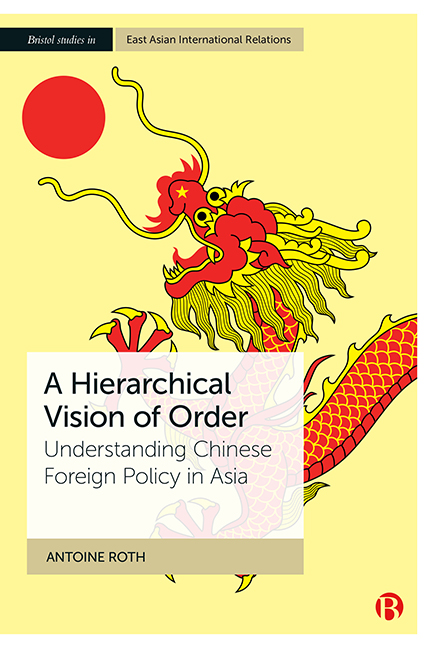Book contents
- Frontmatter
- Contents
- Acknowledgements
- Introduction
- 1 Aspects of Asia as an International System
- 2 The Ideal of Hierarchical Order
- 3 Statecraft in the Long Imperial Era
- 4 China’s Forced Entry into International Society and the Transformation of the Ideal of Hierarchical Order
- 5 The Pursuit of a Hierarchical Order in the People’s Republic of China
- 6 Moral Discourse and Ritual in Contemporary Chinese Diplomacy
- 7 Traditional Tools of Rulership in the Modern World
- Conclusion
- References
- Index
6 - Moral Discourse and Ritual in Contemporary Chinese Diplomacy
Published online by Cambridge University Press: 17 January 2024
- Frontmatter
- Contents
- Acknowledgements
- Introduction
- 1 Aspects of Asia as an International System
- 2 The Ideal of Hierarchical Order
- 3 Statecraft in the Long Imperial Era
- 4 China’s Forced Entry into International Society and the Transformation of the Ideal of Hierarchical Order
- 5 The Pursuit of a Hierarchical Order in the People’s Republic of China
- 6 Moral Discourse and Ritual in Contemporary Chinese Diplomacy
- 7 Traditional Tools of Rulership in the Modern World
- Conclusion
- References
- Index
Summary
From its early days, the PRC has taken as its banner the fight for ‘international justice’. This fight was first about recovering China’s own ‘rightful place’ in international society after the abuses suffered at the hand of imperial powers during the ‘century of humiliation’, but it did not stop there. Indeed, Chinese leaders have consistently presented themselves as advocates of the rights and aspirations of all non-Western states for a more just world (Mitter, 2003: 218 ff.). Under Mao, this meant condemning imperialism and offering rhetorical support for national liberation movements. In the reform and opening period and especially after the end of the Cold War, Mao’s successors have defined international justice as absolute respect for sovereignty in the face of Western interventionism and criticism of non-democratic domestic governance regimes, as well as a fairer repartition of economic resources. This is still the message promoted by Xi Jinping today.
The advocacy of ‘international justice’ is just one aspect of the moralism that characterizes Chinese leaders’ rhetoric on the international stage. As Chih-Yu Shih notes, a moralizing discourse has remained a central pillar of Chinese political culture, with the consequence that ‘the Chinese seem obliged to envision international politics as fashioned of some sort of moral hierarchy’ (1993: 2–3). The PRC claims the top spot in this moral hierarchy by favourably comparing itself to the West. Having concluded early on that these Western powers were morally corrupt and that their domination over international society was illegitimate, modern Chinese statesmen have consistently advocated a ‘better’ way to conduct international relations that would justify their country’s eventual return at the top of the international hierarchy as a more virtuous leader for the nations of the world. Examining this discourse of moral leadership as articulated by the CCP is the first task of this chapter.
Its second task is to consider how this discourse translates into diplomatic practice. We may recall from Chapter 2 that ritual, or behaviour according to the rules of propriety, is intimately linked with moral cultivation in the traditional Chinese conception of order.
- Type
- Chapter
- Information
- A Hierarchical Vision of OrderUnderstanding Chinese Foreign Policy in Asia, pp. 120 - 143Publisher: Bristol University PressPrint publication year: 2023



